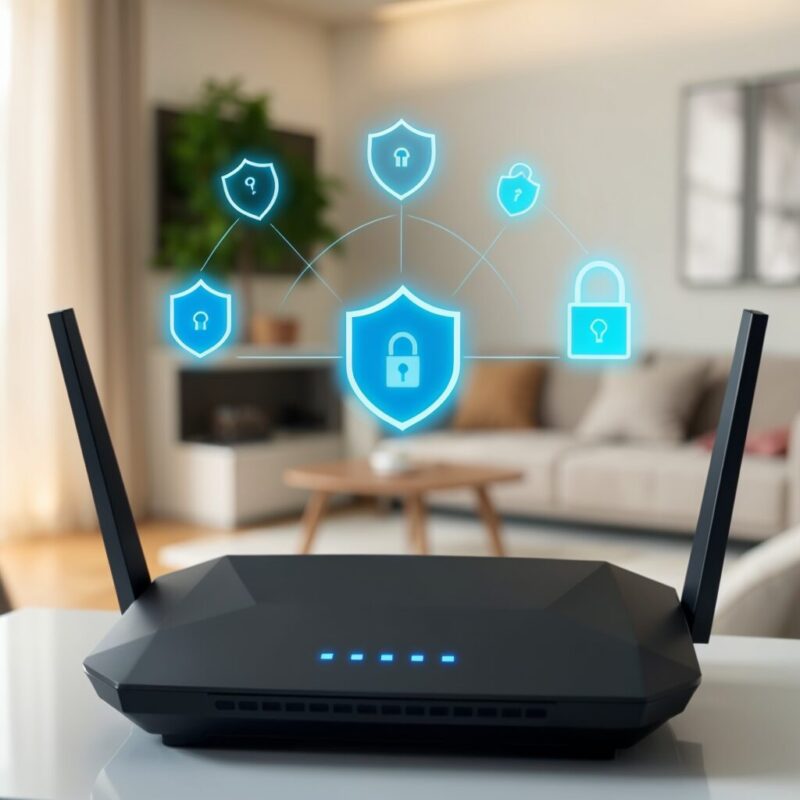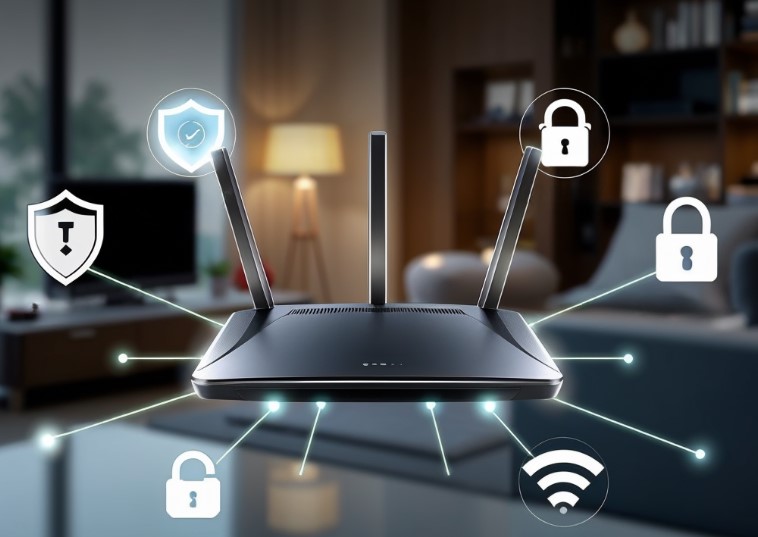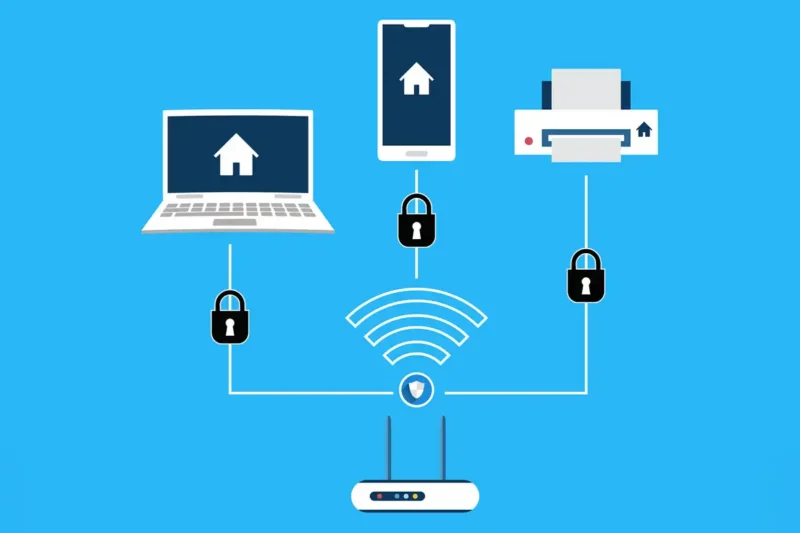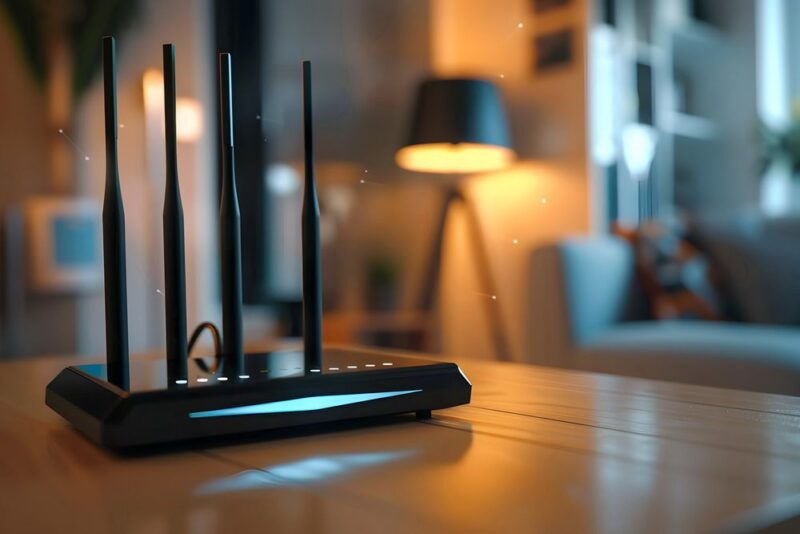Modern routers are pretty good at handling a lot of local traffic. Practically speaking, it should not be a big deal to use the same router for both a home security system and all of your connected devices – like computers and smartphones. Yet some homeowners still choose to use a dedicated router for home security. Doing so is not a bad idea. It actually makes good sense.
If you can afford a second router and you know how to set up a subnet or bridge, you could find that putting your home security system on a dedicated router yields better performance. But even if it doesn’t, connecting a home security system to a dedicated router can make it easier to protect that secondary network from hackers.
How You Would Do It

There are three ways to set up a dedicated router for home security. The first is the easiest. If your internet service provider (ISP) allows you to have more than one WAN address on the same modem or router, then you can simply plug your second router into that device and allow it to assign a separate WAN address.
Of course, you should probably know how to configure the hardware yourself. Your ISP might not be willing to help you do it. And even if they are, they might charge an arm and a leg to send a technician out.
If you are not allowed multiple WAN addresses, you have two other options:
- Subnet – A subnet is a secondary network attached to your primary network. Rather than the modem providing a separate WAN address, your primary router assigns a subnet address. There is some disagreement over whether you should put the security system on the subnet and leave everything else on your primary network or vice versa.
- Bridge – Setting up a subnet can be difficult with some routers. So another option is to create a Wi-Fi bridge. The easiest way to think of a bridge is to think of your secondary router as yet another device on your primary network. You can connect it to your primary router either wirelessly or with an ethernet cable.
Both subnets and bridges can be assigned different network SSIDs. You can also hide those SSIDs so that hackers cannot find them.
The Benefits of a Dedicated Router

Now that you know the basics of how to do it, you might be wondering whether setting up a dedicated router for your home security system is worth the trouble. I suppose it depends on how much you value the benefits of doing so. Consider the following:
1. Improved Security
Using a dedicated router isolates your home security device from your main network. Someone trying to hack your network would not necessarily know that you have a home security system installed. Even guests you otherwise trust can be kept away from your security devices by placing those devices on a separate network with a hidden SSID.
2. Better Performance
For my money, the biggest advantage of setting up a dedicated router is improving performance. Think of a home security system with a bunch of video surveillance cameras. Video cameras can require a tremendous amount of bandwidth to work properly. If they are on your primary network, they could slow down your other devices.
This can become an issue when you follow the advice of home security companies like Vivint Home Security. They tend to recommend installing enough cameras to provide full coverage of a home’s first floor windows and doors, which is actually smart. But that could mean five or six cameras in some cases. Putting them all on a dedicated router would mean that your primary network’s bandwidth is freely available for your other devices.
3. Easier Management
Isolating a home security system on its own network makes maintenance and troubleshooting easier. If you are having trouble with your home security system, you can rule out interference from other devices. Likewise, if you’re having trouble with devices on your primary network, you can rule out problems with your home security equipment.
On a dedicated network, you can also troubleshoot home security devices one at a time. You can do so without interfering with your primary network. All and all, managing a home security system on a dedicated network is just easier.
Things to Consider

Although creating a separate network for your home security system is possible, there are some things to consider. First and foremost is managing communication between the two networks. Security experts tend to recommend putting a firewall between them.
You want your secondary router to still have access to the internet, whether that is through a separate WAN address, a subnet address, or a bridge arrangement. But you also want to restrict traffic flowing the other way. A firewall does exactly that.
Also consider setting up a virtual private network (VPN) if you plan to access your home security system remotely. Some modern routers offer built-in VPN capabilities. If you are working with an older router, you may have to implement a separate VPN.
Separate Networks on the Same Router
As this post winds down, let me say that it is possible to set up a separate network for your home security system on the same router you’re already using – as long as the router supports dual networks and/or bands. For example, my router supports regular and guest networks at both 2.4 GHz and 5 GHz. That means I could set up four separate networks.
Putting my home security system on a 5GHz network is not exactly the same thing as setting up a dedicated router, but it works well enough. It would provide some of the same benefits without having to invest in a second router then go through the trouble of setting up a subnet or bridge.
If you are thinking about isolating your home security system from the rest of your network, know that doing so is entirely possible. It requires some knowhow, but it can be done.


